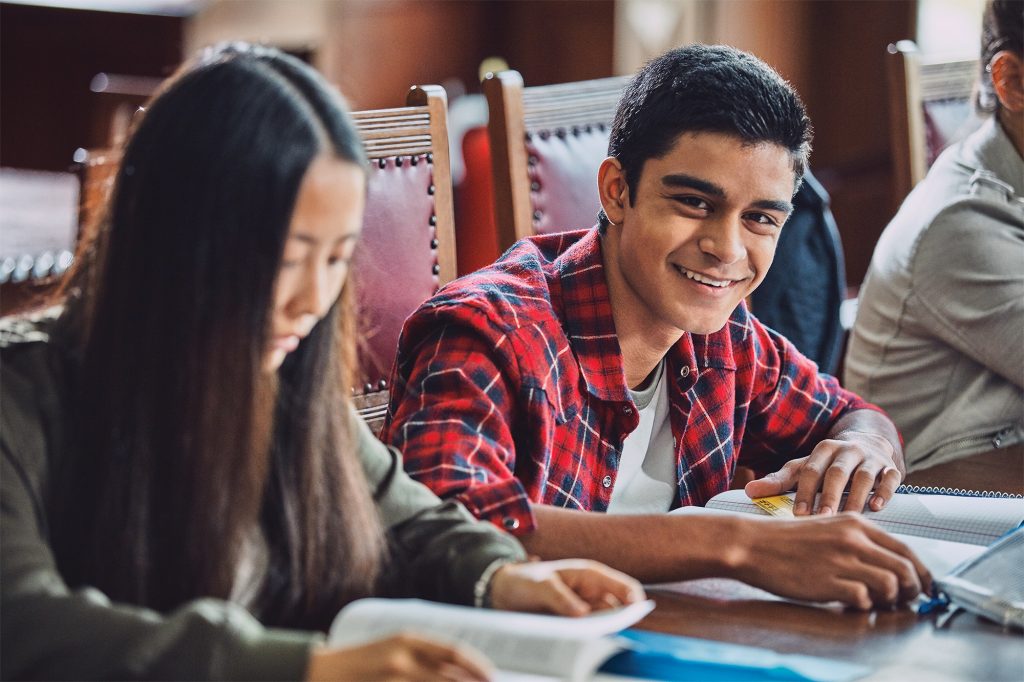
Victoria’s teachers learn how to win maximum impact from Minecraft: Education Edition
Children who started kindergarten this year will graduate from high school in 2030. It’s just 13 short years away – but by then McKinsey & Co estimate that 375 million people around the world will have had to change the way they work because of ongoing workplace transformation.
The challenge for schools is to ensure that today’s students are equipped with the skills and the smarts they need to succeed in this radically different world.
The Victorian Department of Education and Training (DET) has already taken up this challenge with its increased investment in better classrooms, upgraded facilities and new schools across the State.
As part of that Victoria’s schools are also undergoing a digital transformation, deploying Office 365, and a world-leading rollout of Minecraft: Education Edition (Minecraft: EE) which will be made available to 600,000 plus students attending Victoria’s 1,500 State schools.
It makes Victoria one of the largest educational jurisdiction in the world to provide every student with access to Minecraft: Education Edition and a platform for learning innovation.
The release of Minecraft: EE on the Department’s eduSTAR Catalogue has kept schools’ technical staff busy. Enthusiasm is high with as many as 631 downloads taking place in a single week! Instructions on how schools can download the software from the eduSTAR Catalogue can be found here: https://www.edustar.vic.edu.au/Pages/Minecraft.aspx
The recently released Gonski review into achieving excellence in Australian schools notes; “By the end of schooling, every Australian child needs to emerge as a connected and engaged learner, prepared to succeed in and contribute to a rapidly changing world. This means students must have acquired the basic building blocks of learning, in particular literacy and numeracy skills.”
But the review also notes students need to develop problem solving, interactive and social skills as well as critical and creative thinking.
According to Stephen Elford, a Global Minecraft Mentor who is leading the Minecraft: Education Edition professional learning at Victoria DET: “One of biggest things of the Minecraft rollout is that it allows for development of 21st century skills like collaboration, problem solving, communication – all skills that are hugely beneficial for students in their futures.”
While many students will be familiar with the basics of Minecraft already, the Education Edition is a richer, open collaboration and learning platform that supports curriculum-based learning while encouraging students to both think for themselves and collaborate with peers to turbo-charge their learning.
To ensure that maximum value is reaped from the deployment, Victoria DET and Microsoft are working together on a ground breaking professional development initiative for teachers that will be rolled out from July.
The Gonski report notes that excellent teachers with strong professional skills and motivation can account for up to 30 per cent of the difference in achievement between students.
A cascade approach to professional development is being deployed. All schools have the opportunity for their teachers to attend the free Minecraft Teacher Starter Academy with 8-10 academies planned for Term 3 and 4. These starter academies give teachers the opportunity to become familiar with Minecraft: Education Edition as a learning and teaching platform. The starter academies will be followed up with further sessions allowing teachers to explore how Minecraft: Education Edition can be linked to the Victorian Curriculum within their own classrooms. During Term 4, there will also be opportunities for teachers who want to begin to build extensive learning opportunities in Minecraft: Education Edition for their students to explore and create in.
In Term 3 the teacher manual, Switched On Minecraft: Education Edition along with additional online resources will be provided to all schools to support implementation. Lesson plans in this manual have been incorporated into the Minecraft Teacher Starter Academy professional learning sessions. Schools also have access to the Minecraft: Education Edition DigiPub, the Department’s digital publication which provides implementation advice to schools as well as lesson plans and projects aligned to the Victorian Curriculum. To access go to: http://www.digipubs.vic.edu.au/curriculum/minecraft/home
Stephen Elford explains that add ons, such as the chemistry add-in allow Minecraft: EE to be deployed across the curriculum. “The chemistry add-in brings another dimension of experimentation that can be done safely. You couldn’t do this in the past – have the ability to explore and experiment, create. It’s very similar to what real scientists do with elements.”
As an open platform for creativity, collaboration and expression of understanding, Minecraft: EE allows students to build and create collaboratively whatever they want – and remain aligned to the curriculum.
It can be used to help students build skills in science, technology, engineering and maths (STEM) as well as history, geography and coding.
The coding add on, Code Builder, introduces students to computational thinking and coding skills development, starting with block-based coding that can be instantly converted to Java. Meanwhile there are items that align with electrical circuitry in Minecraft: EE, allowing students to explore this freely and safely. Students will have the opportunity to use this coding and circuitry functionality in this year’s Games and Apps Challenge. The Challenge is open to all Victorian school students in years 3 to 10 and aims to encourage creativity around coding and highlight the role of art and design in the games industry. It involves students producing games and apps that offer solutions to real world problems with the theme for this year’s Challenge being: Together We Can.
The Challenge will culminate in a showcase exhibition at the Education in Games Summit 2018 at the Australian Centre for the Moving Image (ACMI) on Friday 26th October 2018. Information on how schools can participate in the Challenge can be found here: http://gac.global2.vic.edu.au/
Victoria’s schools will also engage with a research program designed to build an evidence base of what pioneering schools are achieving with Minecraft: Education Edition in Australia, allowing other schools to learn from their experience and accelerate toward best practice.














